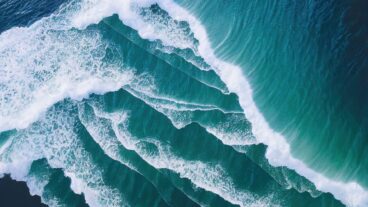From ‘green’ wineries to school rooftops and African villages, Israeli solar energy company Sunday has an ambitious plan to become an international power plant provider.
The 1980s pop icon Morrissey said that every day is like Sunday, silent and grey. But an Israeli solar energy company has taken the first day of the week in the Hebrew calendar and used it for more optimistic purposes: They named their company Sunday Energy, in appreciation of the power packed into the sun.
With less than two years in the business, Sunday is already becoming an alternative energy force in Israel and setting the stage for a solar powered Middle East and other emerging markets.
After partnering with schools, wineries and global energy companies like Ormat locally in Israel, the young company is predicting sales of about $250 million from its solar installations in the next couple of years.
The plan is not to be any old solar technology integrator – bringing together photovoltaic (PV) panels, meters and wires from different suppliers to store and direct solar power from the sun. Sunday has an ambitious plan to be a power plant provider, says Kobi Dinar, the company’s CEO.
The company, which is technology agnostic, plans on owning and operating utility-grade solar parks in Israel and abroad, as well as grid connected networks.
Raise a glass of green Israeli wine
Sunday has already started building its sun-powered electric plants in Israel, and plans to build solar power plants throughout the world, in destinations such as the US and Australia, but also in poorer markets like Africa.
“We haven’t invented the wheel,” Dinar tells ISRAEL21c: “Einstein got his first Nobel prize on the photovoltaic principle. Ours is a gestalt of many pieces you put together.” Sunday provides solutions based on polycrystalline, monocrystalline and thin-film solar panels.
With suppliers from Germany and other European countries, Sunday sources about 40 percent of its parts and design from Israel. Surprisingly, despite advances made by local companies working in this innovative area, Israel joined the solar energy market quite late.
But the Israeli companies are quickly catching up. Sunday made the news in July after it announced completion of a solar installation for the Carmey Avdat winery.
From now on the winery will be producing three shades of vino – red, white and green. The 50 kW peak installation covers a 200 square meter (about 2,153 square foot) roof of the Negev Desert-based winery to provide 65 percent of its annual energy needs.
Garnering top tenders
“The Carmey Avdat installation required a unique skill set that only our multi-disciplinary team of engineers and architects was able to provide, making Sunday the obvious choice for this project,” says Dinar.
“As a socially-responsible company, producing ‘green’ wine was always a goal, and is an important step for us in reducing our carbon-footprint and contributing to the reduction of greenhouse gasses emitted into the atmosphere each year,” states Eyal Yizraeli, founder of Carmey Avdat.
Previous tenders won by Sunday include a bid to install solar energy panels on school rooftops in Tel Aviv, a tender to install panels on the municipality buildings for the Israeli city of Kiryat Ono, another on the Dalton Winery and a tender to build the largest solar energy roof in the Middle East.
According to local Israeli newspapers, the installation isn’t huge by global standards, but it is enormous for the Middle East and for Israel in particular, where its total installed solar energy capacity by the end of 2008 was 1 MW. The Middle East region is considered a huge and virtually unexplored market for solar energy.
Based in Ra’anana in central Israel, with 15 full-time employees, much of Sunday’s staff comes from the most advanced high-tech community in Israel.
Looking off grid, to Africa
The company’s innovation comes into play in the search for creative solutions to puzzles like how to install and implement a plan to develop a solar energy system to cover a water reservoir in the desert. This is one of the company’s challenges, explains Dinar, noting that Sunday is especially interested in merging the fields of solar energy and agriculture.
Sunday also has some innovation of its own up its sleeve: “We will be the first company in Israel and the first in the world to have trackers installed on rooftops allowing our system to follow the sun,” reveals Dinar.
Sunday is also looking to emerging markets, like Africa, where Dinar would like to “electrify villages that are off grid today. The idea is to be one of the first to build electricity grids or networks [in African villages] that are 100% clean and ecological and which are based purely on solar energy.”
The Israel Electric Company can guarantee a high return on investment, from 12 to 15% for the next 20-25 years, thanks to a plan designed to help the country reach its goal of supplying 20% of its energy from renewable sources by 2020. It is a very good sound investment opportunity for those looking to support the Israeli cause, says Dinar.
While currently self-financed, Sunday is considering working with a strategic investor, in order to capture even more power from the sun.












